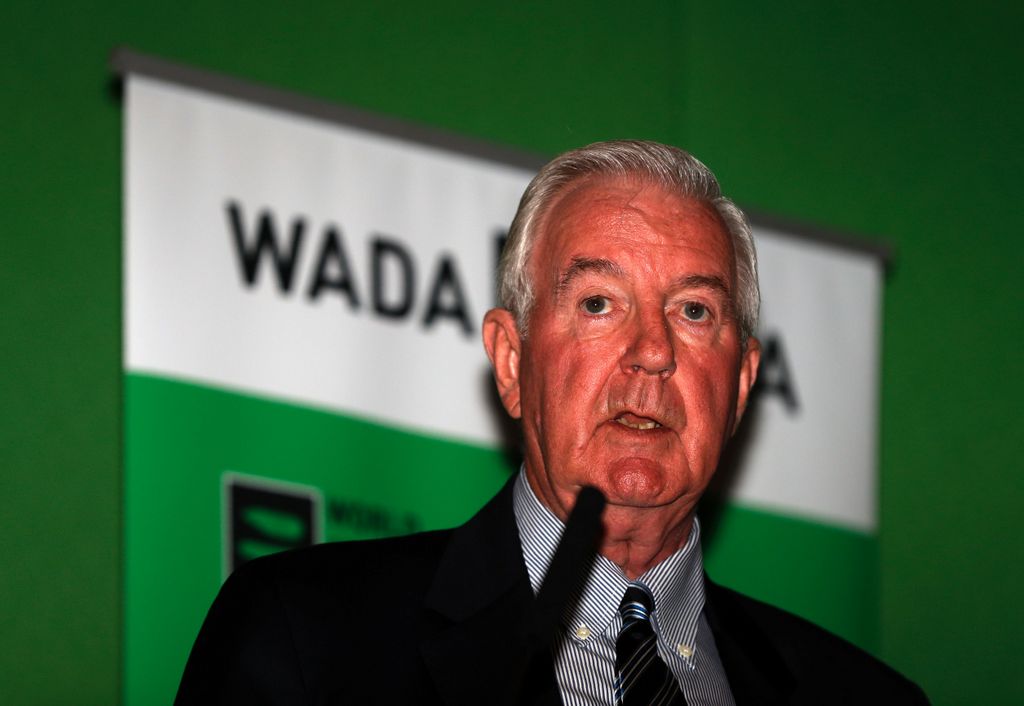'An astonishing lack of understanding' - WADA President hits back at MPCC
Craig Reedie defends himself on Froome case, tramadol, Puerto

World Anti-Doping Agency (WADA) President Craig Reedie has issued a staunch response to the Movement for Credible Cycling (MPCC) after the group called for his resignation in a fiercely critical open letter.
The MPCC, a voluntary association of teams who sign up for additional anti-doping measures, wrote to Reedie this week and complained of what it perceived as failures at WADA over issues including the Chris Froome salbutamol case, tramadol, the Russia scandal, and Operación Puerto.
In a letter addressed to MPCC President Roger Legeay and published by the BBC's Sport Editor Dan Roan, Reedie wrote: "Let me be clear from the outset, as president of WADA, I fully intend to lead the anti-doping movement until the end of my second term next year. That is the extent of my mandate and at that stage I will be happy to pass on the leadership of the organisation to my successor on December 31, 2019, full in the knowledge that it is stronger and more effective now than it has ever been throughout its 20-year existence."
Reedie then addressed each of the MPCC's complaints individually. With regards to Froome, who returned an adverse analytical finding for salbutamol at last year's Vuelta a España before being cleared on the eve of this year's Tour de France, he rejected claims that WADA was 'in contradiction with its own rules'.
"WADA remains convinced that the UCI reached the correct and fair outcome in what was a very complex case," Reedie wrote. "Your efforts to over-simplify it, without having knowledge of the voluminous file of the case and both the scientific and legal challenges it raised, demonstrate an unfortunate attempt to cast a shadow on WADA's credibility and an obvious refusal to accept the reality of what happened."
As for Operación Puerto, the blood doping scandal that dates back to 2006, Reedie insisted WADA "has done everything possible to date from a legal standpoint and in every other way". The MPCC had labelled the case, in which many clients of disgraced doctor Eufamiano Fuentes remain unidentified, as "a debacle".
"To criticise WADA in this case demonstrates an astonishing lack of knowledge and understanding of what has happened to date," Reedie asserted.
Get The Leadout Newsletter
The latest race content, interviews, features, reviews and expert buying guides, direct to your inbox!
On Russia, Reedie acknowledged the MPCC as one of a number of "dissenting voices" after the recent decision to reinstate the country's anti-doping agency, which had been exposed as complicit in state-sponsored doping programmes.
"WADA respects that everyone is entitled to voice their opinion, but we remain firmly of the view that it was the right decision for clean sport and that WADA is in a stronger position because of it," wrote Reedie, adding that the decision was a "win-win" situation. "Either we get our hands on the data so that our investigators can do what they do so well and go after the cheats, or we will be in a position to make RUSADA non-compliant again, this time under harsher terms than before."
On tramadol, the MPCC has been lobbying for the opioid painkiller to be banned for a number of years now, after various accounts both of its performance-enhancing potential and its link to crashes in the peloton. Despite the UCI pledging to veer from the WADA regulations and ban tramadol in pro cycling races from January, the drug remains on WADA's 'monitoring programme', much to the MPCC's frustration.
"There is not currently any consensus among WADA's Prohibited List Expert Group - which is composed of experts who are independent from WADA - that tramadol meets the criteria for inclusion on the List," wrote Reedie, who added that he was "supportive of the UCI's initiative to control the use of tramadol in cycling".
Reedie concluded his letter on a defiant tone with reference to the recent decision from the Court of Arbitration for Sport to increase the bans handed to three former staff members at the US Postal Service Team, where Lance Armstrong won multiple Tour de France titles before later admitting to doping during each of them.
Johan Bruyneel's 10-year ban was increased to a lifetime ban, while team doctor Pedro Celaya, who was initially handed an eight-year ban, is now also banned for life. Team coach Jose Marti saw his ban rise from eight years to 15 years.
"I would like to point out that your letter was received on 24 October, ironically the same day as WADA won a significant victory for clean cycling in securing enhanced bans for three three of your sport's most notorious cheats," wrote Reedie. "The decision of the Court of Arbitration for Sport to uphold our appeal, which was supported by the UCI, USADA and everyone who cares about clean sport, has certainly undermined your assertion that WADA is not upholding the rights of clean athletes. In fact, nothing could be further from the truth - in everything we do, WADA is keeping the athletes to the fore."